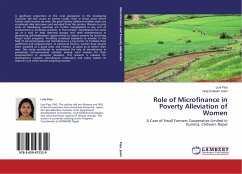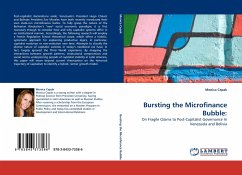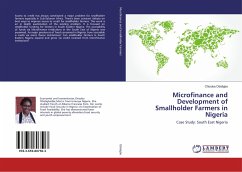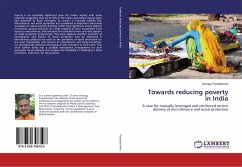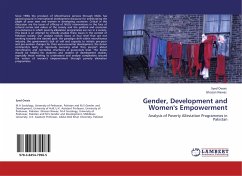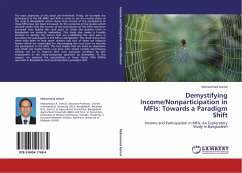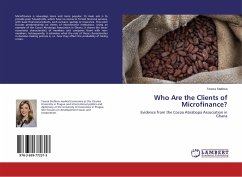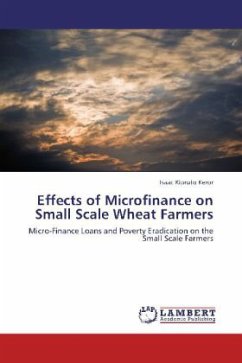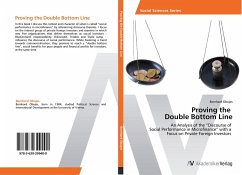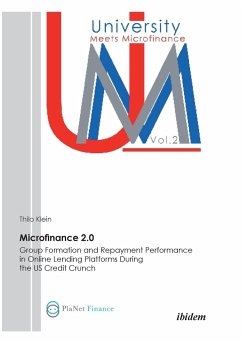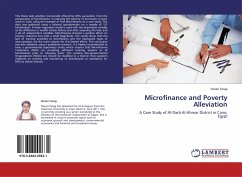
Microfinance and Poverty Alleviation
A Case Study of Al-Darb Al-Ahmar District in Cairo, Egypt
Versandkostenfrei!
Versandfertig in 6-10 Tagen
32,99 €
inkl. MwSt.

PAYBACK Punkte
16 °P sammeln!
This thesis tests whether microcredit offered by MFIs succeeded, from the perspectives of beneficiaries, in reducing the poverty of borrowers in poor areas in Cairo using the example of First Microfinance as a case study. The data was gathered using a tailored questionnaire on a sample of 151 beneficiaries. A linear regression model is used with the dependent variable as the difference in wealth indices before and after acquiring the loan and a set of independent variables. Microfinance showed a positive effect on poverty reduction but with a small magnitude. The results show that the lack of ...
This thesis tests whether microcredit offered by MFIs succeeded, from the perspectives of beneficiaries, in reducing the poverty of borrowers in poor areas in Cairo using the example of First Microfinance as a case study. The data was gathered using a tailored questionnaire on a sample of 151 beneficiaries. A linear regression model is used with the dependent variable as the difference in wealth indices before and after acquiring the loan and a set of independent variables. Microfinance showed a positive effect on poverty reduction but with a small magnitude. The results show that the lack of training provided to beneficiaries and the haphazard types of micro-projects are the main reasons for this limited effect. This conclusion was also validated using a qualitative research. It is highly recommended to have a governmental supervisory entity which ensures that Microfinance Institutions (MFIs) are providing sufficient training sessions to all beneficiaries prior to releasing loans. The existing Non-governmental Organizations (NGOs) law should be modified in a manner that supports emphasis on training and monitoring of beneficiaries as mandatory for MFIs to obtain licenses.



